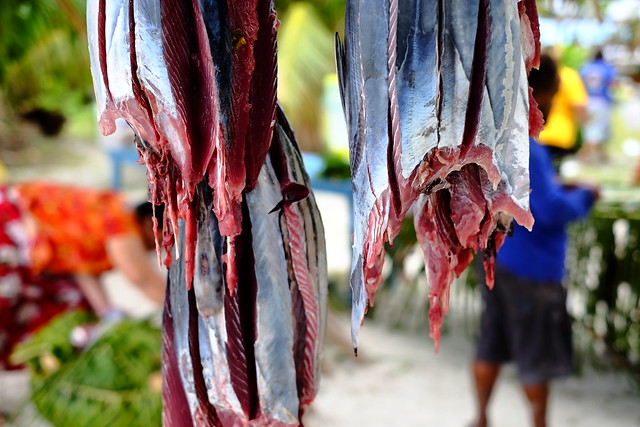How are Climate Change and Hunger in Tuvalu Related?
 Once known as the Ellice Islands, the country of Tuvalu is a collection of nine islands located in the South Pacific Ocean. Though Tuvalu has a population of around 11,200, it is considered one of the least developed countries in the world. As a result, hunger in Tuvalu is a major concern for the people and their government.
Once known as the Ellice Islands, the country of Tuvalu is a collection of nine islands located in the South Pacific Ocean. Though Tuvalu has a population of around 11,200, it is considered one of the least developed countries in the world. As a result, hunger in Tuvalu is a major concern for the people and their government.
The latest report on poverty headcount ratio conducted by the World Bank was in 2010, which stated that 26.3 percent of the population is estimated to live below the national poverty line. Additional reports conclude that 61.3 percent of Tuvalu citizens aged 15-years and up are employed. Thus, places where poverty is allowed to fester, increased rates of hunger are expected to rise.
Hunger in Tuvalu is considered to be a result of one of the biggest instigators in the country, climate change. Climate change is a constant concern for the people and the government of Tuvalu. Many political figures of Tuvalu are strong advocates for environmentalism and continuously campaign against climate change.
These politicians argue that climate change will not only contribute to increasing sea levels but will expedite the salination of soil that threatens agriculture.
According to U.N. reports, Tuvalu is expected to completely disappear beneath the ocean because of global warming. Moreover, salinization of the soil reduces agricultural output which detrimentally affects local farmers and the Tuvalu economy.
In Tuvalu, the largest export commodity within the country is the dried coconut kernels of coconut palm trees. Without enough land coverage or quality soil for agriculture, hunger in Tuvalu is expected to climb substantially within the following years.
The U.N. has even identified that hunger in Tuvalu is a result of climate change in the following released statement, “The diet of Tuvaluans is primarily based on the marine environment and a limited number of food crops. These will be seriously affected by climate change. There will be a number of impacts that will affect the food security of Tuvalu. These include coral bleaching, ocean acidification, saltwater contamination and sea level rise.”
In response, the U.N., as well as delegates of the Pacific Island States, have committed to reducing both hunger and climate change through the use of ratifying the Paris Agreement.
In 2016 during the annual debate at the U.N. General Assembly, Tuvalu’s Prime Minister Enele Sosene Sopoanga applauded and showed solidarity with the ratification of the Paris Agreement.
Prime Minister Sopoanga stated that “We must [now] ensure that the Paris Agreement enters into force [and that] it must be fully elaborated and operationalized as early as possible on real adaptation and mitigation.”
Prime Minister Sopoanga also brought to light the plight that climate change has had on the country of Tuvalu. The prime minister expressed that, “We pray that through these great halls of the U.N., our humble voice will be amplified by the conscience and goodwill of humanity for real urgent action.”
During the debate, Prime Minister Sopoanga expressed numerous times that the country of Tuvalu was fully prepared to meet the targets of the global development agenda in order to reduce climate change.
With continued efforts to ratify legislation as well as advocate against climate change, the country of Tuvalu should expect to see significant improvement in not only the integrity of their islands but also a reduction of hunger in Tuvalu.
– Shannon Warren
Photo: Flickr
